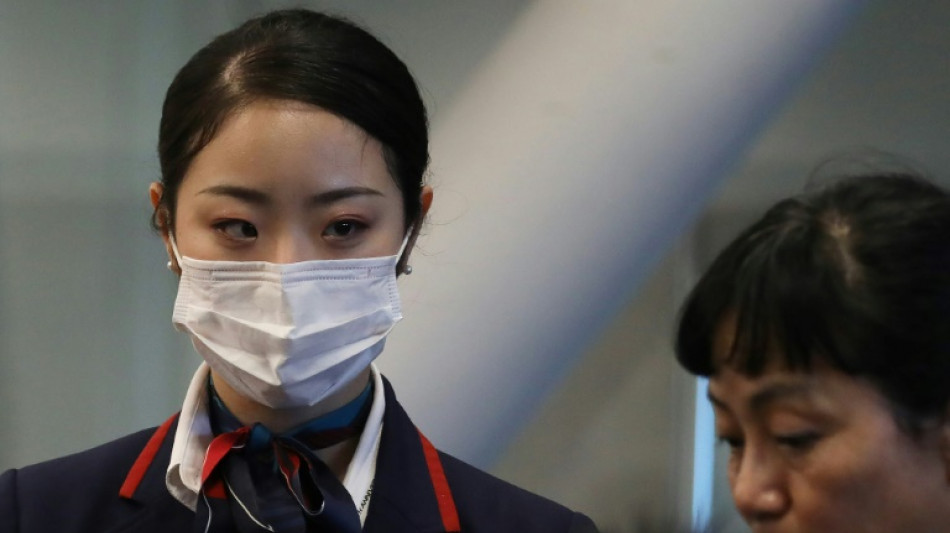
-
 Cricket falls silent across Australia after teenager killed by ball
Cricket falls silent across Australia after teenager killed by ball
-
Vinicius Junior in the clear over Clasico outburst

-
 UK welcomes king's move to strip Andrew of royal titles
UK welcomes king's move to strip Andrew of royal titles
-
Liverpool must snap losing 'habit', says under-fire Slot

-
 Bencic out of Hong Kong last eight as tennis injury list mounts
Bencic out of Hong Kong last eight as tennis injury list mounts
-
Xi invites Canada PM to China in first meet in 8 years
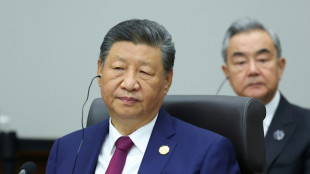
-
 Chinese defence minister seeks 'trust' with US but cautions over Taiwan
Chinese defence minister seeks 'trust' with US but cautions over Taiwan
-
India's Rodrigues beat anxiety and tears to become World Cup star

-
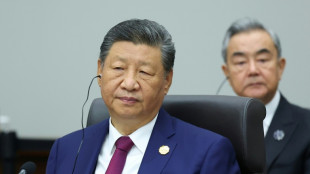 China, Canada leaders hold first formal talks since 2017
China, Canada leaders hold first formal talks since 2017
-
Nvidia to supply 260,000 cutting-edge chips to South Korea

-
 Camels replace cows as Kenya battles drought
Camels replace cows as Kenya battles drought
-
Endangered across west Africa, leopards thrive in I.Coast reserve
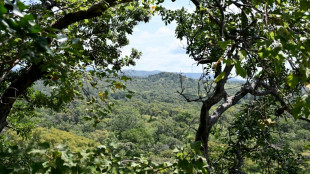
-
 Risky gold rush drives young into Ivory Coast nature park
Risky gold rush drives young into Ivory Coast nature park
-
Deadly roads block mothers from care in jihadist-hit Nigeria
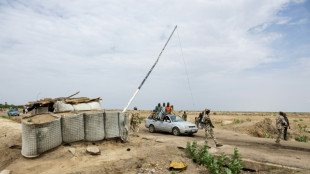
-
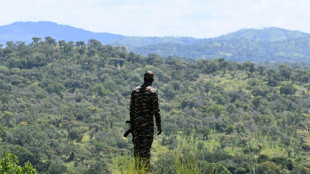 Pillaged I.Coast nature reserve on the mend after crisis decade
Pillaged I.Coast nature reserve on the mend after crisis decade
-
India savours 'greatest day' after Women's World Cup heroics

-
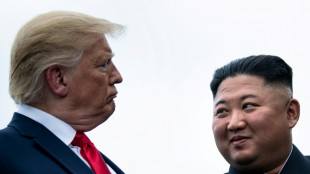 Why emboldened Kim had little need for photo-op with Trump
Why emboldened Kim had little need for photo-op with Trump
-
In the black: the business of mourning Thailand's queen mother
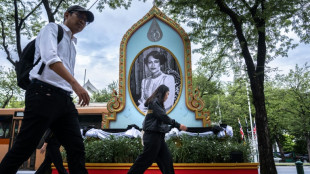
-
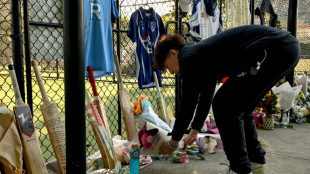 Tributes as death of Australian teenager touches cricket world
Tributes as death of Australian teenager touches cricket world
-
Jackson throws four TD passes as Ravens rout Dolphins

-
 NBA champs Thunder roll past Wizards, Bucks and Spurs win
NBA champs Thunder roll past Wizards, Bucks and Spurs win
-
UK's Andrew in freefall, stripped of queen's protection
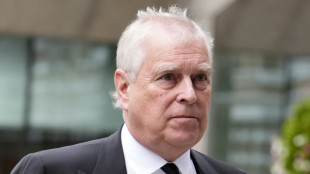
-
 Real Madrid and Barcelona aim to shake off Clasico consequences
Real Madrid and Barcelona aim to shake off Clasico consequences
-
Ambitious Paris FC making steady progress after landing in big time

-
 Rebuilt Leverkusen hope to reignite Bundesliga rivalry at Bayern
Rebuilt Leverkusen hope to reignite Bundesliga rivalry at Bayern
-
Xi primed to meet Japan, Canada leaders after Trump summit

-
 Australia coach Schmidt pleads for Edmed patience ahead of England clash
Australia coach Schmidt pleads for Edmed patience ahead of England clash
-
Liverpool feel pressure to end 'crisis' run, Man City test Bournemouth limits

-
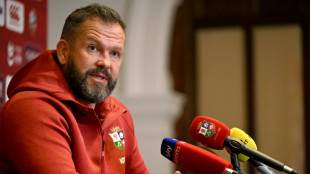 Farrell eyes 'reset' as Ireland-All Blacks ready for 'Battle of Chicago'
Farrell eyes 'reset' as Ireland-All Blacks ready for 'Battle of Chicago'
-
Asia markets mostly up on heels of Apple, Amazon earnings

-
 Jones wants Japan to enhance 2015 legacy against South Africa
Jones wants Japan to enhance 2015 legacy against South Africa
-
Growing rice in the UK 'not so crazy' as climate warms
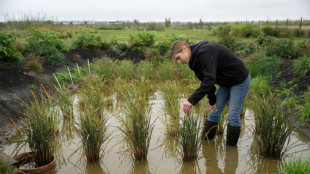
-
 Australia say 'let ourselves down' after India end world domination
Australia say 'let ourselves down' after India end world domination
-
AI cannot make cinema, director Linklater says

-
 After delays, Egypt set for lavish opening of grand museum
After delays, Egypt set for lavish opening of grand museum
-
What we know about the downfall of Andrew, born a UK prince

-
 Desperate Dodgers mull using Ohtani as relief pitcher
Desperate Dodgers mull using Ohtani as relief pitcher
-
Blue Jays vie to close out sputtering Dodgers in World Series

-
 Indigenous Australians celebrate historic state treaty
Indigenous Australians celebrate historic state treaty
-
Caught between Venezuela and US, Trinidad fishermen fear the sea
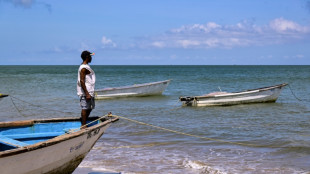
-
 Latest NFL Chiefs-Bills duel has both chasing division leaders
Latest NFL Chiefs-Bills duel has both chasing division leaders
-
Sierra Leone chases rare repeat in Breeders' Cup Classic

-
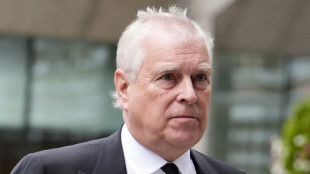 King Charles strips Andrew of royal titles, Windsor home
King Charles strips Andrew of royal titles, Windsor home
-
Sales of 'services' help Apple beat earnings forecasts

-
 Beyond words: '67' crowned 'Word of the Year'
Beyond words: '67' crowned 'Word of the Year'
-
Amazon shares surge as AI boom drives cloud growth

-
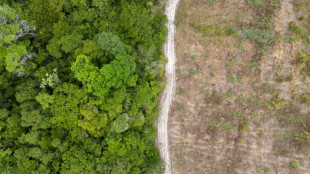 Brazil boasts drop in deforestation ahead of UN climate talks
Brazil boasts drop in deforestation ahead of UN climate talks
-
Russians marking Stalin's repression warn against return to past

-
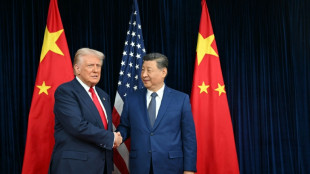 Stocks mostly fall as investors digest Trump-Xi talks, earnings
Stocks mostly fall as investors digest Trump-Xi talks, earnings
-
Turkey says Pakistan-Afghanistan talks to resume
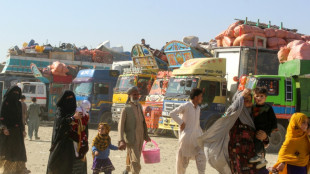

Is the world ready for the next pandemic?
An awkward question remains five years after Covid-19 began its deadly rampage: is the world ready to handle the next pandemic?
The World Health Organization, which was at the heart of the pandemic response, has been galvanising efforts to determine where the next threat might come from and to ensure the planet is ready to face it.
But while the UN health agency considers the world more prepared than it was when Covid hit, it warns we are not nearly ready enough.
- View from the WHO -
Asked whether the world was better prepared for the next pandemic, WHO chief Tedros Adhanom Ghebreyesus said recently: "Yes and no".
"If the next pandemic arrived today, the world would still face some of the same weaknesses and vulnerabilities," he warned.
"But the world has also learned many of the painful lessons the pandemic taught us, and has taken significant steps to strengthen its defences."
Maria Van Kerkhove, the WHO's epidemic and pandemic preparedness and prevention director, said it was a matter of when, not if, we will face another pandemic.
"There's a lot that has improved because of the 2009 (H1N1) flu pandemic but also because of Covid. But I think the world is not ready for another infectious disease massive outbreak or pandemic."
- Expert views -
The Independent Panel for Pandemic Preparedness and Response, created by the WHO, was blunt in its assessment.
"In 2025, the world is not ready to tackle another pandemic threat," it said, citing continued inequality in access to funding and pandemic-fighting tools like vaccines.
Renowned Dutch virologist Marion Koopmans told AFP the success and speedy production of mRNA vaccines were a "game changer" for the next pandemic.
However, she warned that "a seeming increase in vaccine hesitancy", amid "staggering" levels of disinformation, meant that if another pandemic arrived soon, "we would have major issues with the use of vaccines because of that."
Meg Schaeffer, a disease epidemiologist at the US-based SAS Institute, said it would take public health agencies four to five years to upgrade systems to detect and share information faster.
"No, I don't think that we're any more prepared than we were with Covid," she said.
However, "I do have confidence that we as society know what to do... to protect each other," through distancing, facemasks, and limiting travel and personal interactions, she added.
- Mitigation efforts -
Steps have been taken to prepare for the next pandemic and handle its impact.
The new WHO Hub for Pandemic and Epidemic Intelligence in Berlin works on collaborative surveillance to better detect threats and mitigate them.
The World Bank's Pandemic Fund has issued $885 million in grants since 2022 to fund nearly 50 projects across 75 countries.
An mRNA technology transfer hub was set up in South Africa to improve local vaccine production, while a Global Training Hub for Bio-manufacturing was established in South Korea to improve responses.
- New global alarm button -
After Covid struck, the WHO on January 30, 2020 declared a Public Health Emergency of International Concern (PHEIC) -- the highest alarm level under the International Health Regulations.
But most countries did not jolt into action until Tedros described the outbreak as a pandemic on March 11 that year.
To address this, the health regulations were amended last June to include a new, higher "pandemic emergency" level of alarm, requiring countries to take "rapid" coordinated action.
- Pandemic treaty -
In December 2021, countries decided to start drafting an accord on pandemic prevention, preparedness and response, to help avert a repeat of the failings exposed by Covid.
After numerous negotiation rounds, the WHO's 194 member states have broadly agreed on what to include, but there are several remaining sticking points.
A key fault line lies between Western nations with major pharmaceutical industry sectors and poorer countries wary of again being sidelined.
One outstanding issue is the proposed obligation to quickly share emerging pathogens, and then the pandemic-fighting benefits derived from them, like vaccines.
The deadline for reaching a deal has been pushed back a year to May 2025.
- Looking for next threats -
Global experts have been working hard to determine where the next pandemic threat will come from.
Tom Peacock, a virologist at Imperial College London, told AFP the possibility of an H5N1 bird flu pandemic should be taken "very seriously".
The WHO tasked more than 200 independent scientists to evaluate 1,652 pathogens, mostly viruses. They identified more than 30 priority pathogens.
Among them were those that cause Covid-19, Ebola and Marburg, Lassa fever, MERS, SARS and Zika.
Also on the list is "Disease X" -- a placeholder for a pathogen currently unknown to cause human disease.
The current plans aim at amassing broad knowledge, tools and countermeasures that could be rapidly adapted to emerging threats.
R.Kloeti--VB




